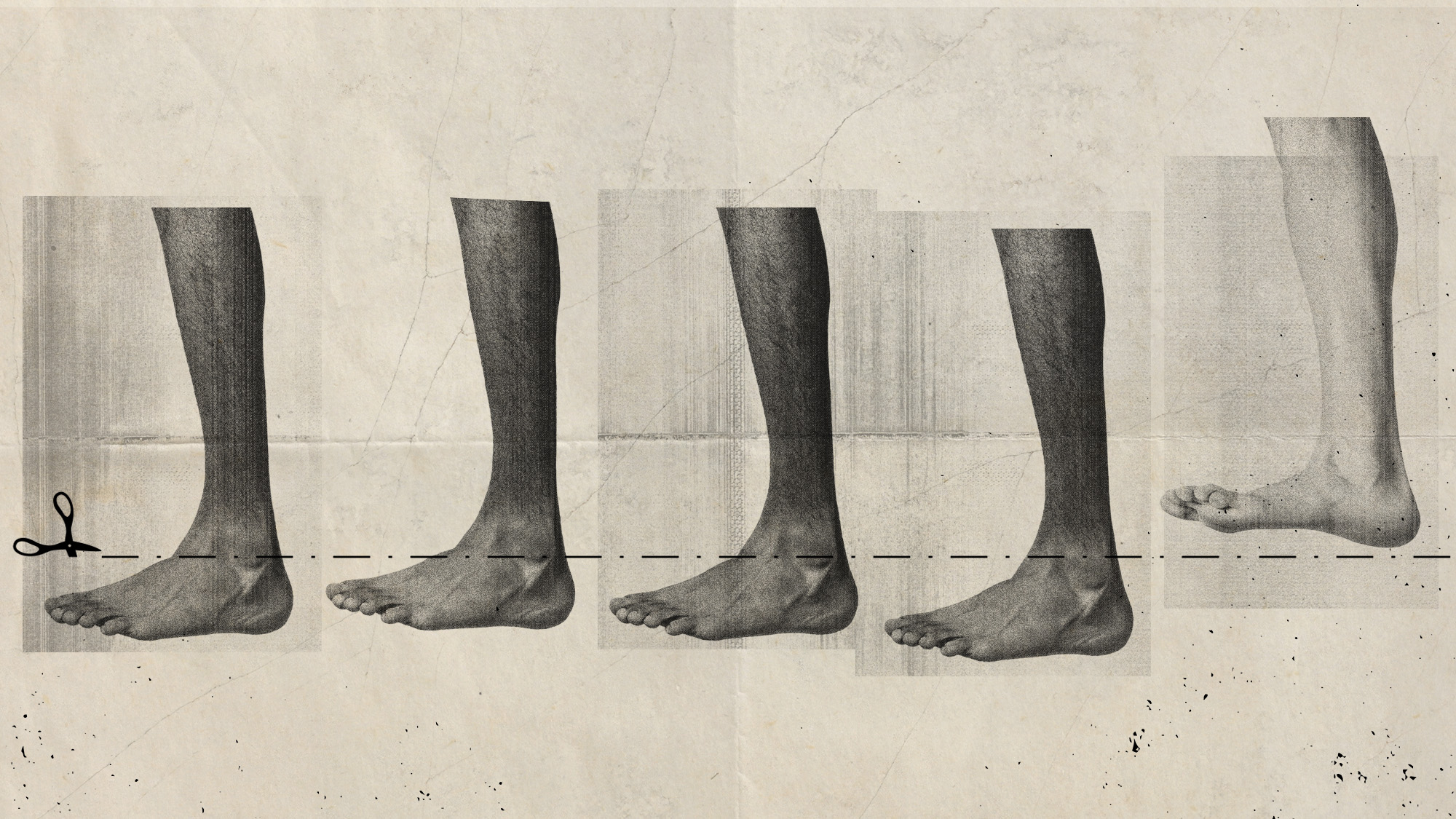Diabetic amputations surge among Black and Latino Americans
There is an epidemic of diabetes-related complications, and minority communities are being hit the hardest


A free daily email with the biggest news stories of the day – and the best features from TheWeek.com
You are now subscribed
Your newsletter sign-up was successful
The number of people with diabetes in America has been on the upswing in recent years, and so has the number of amputations related to complications from the illness. As with many other health care disparities in the United States, the Black and Latin American communities are getting hit the hardest by the crisis, having their limbs amputated at a higher rate than their white counterparts.
'The most stark disparity in Black versus white health in America'
The number of diabetic Americans suffering from complications that result in amputation has been on the rise in general in the United States. About 154,000 Americans with diabetes undergo amputation each year, per the American Diabetes Association's Amputation Prevention Alliance. As much as 80% of non-traumatic lower limb amputations are due to diabetes complications. And many of the amputations were preventable.
"It is a perfect storm of poor health and lack of medical guidance," Dr. Dean Schillinger, founder of the UCSF Center for Vulnerable Populations, said to The Guardian. A person who has developed a foot ulcer "often doesn't realize they need to not put weight on this foot so it can heal," she said. They're often working to support their families and can't just 'put their feet up for four to six weeks.'"
The Week
Escape your echo chamber. Get the facts behind the news, plus analysis from multiple perspectives.

Sign up for The Week's Free Newsletters
From our morning news briefing to a weekly Good News Newsletter, get the best of The Week delivered directly to your inbox.
From our morning news briefing to a weekly Good News Newsletter, get the best of The Week delivered directly to your inbox.
Statistics show that specific communities are more likely to be caught in that perfect storm. Studies show that less affluent Americans with diabetes are more than four times more likely to have a limb amputated than wealthier Americans with diabetes. Black and Latin American diabetics are four times as likely to need amputations than white Americans, according to a September study. Black people are also three times as likely to develop peripheral artery disease (PAD), the "diabetes-related condition that impedes blood flow to the limbs," The Guardian said. Amputations are known as a "mega-disparity" in health care, Schillinger said to the outlet. "It is perhaps the most stark disparity in Black versus white health in America."
Texas has one of the highest rates of diabetes-related amputations, and the majority Mexican American city of San Antonio has been hit hard by the crisis. It has been driven by a "lethal combination of genetics, poor access to health care, diets high in processed foods and sedentary lifestyles," said The New York Times. The problem is especially stark for men, who are about three times more likely to lose a foot to diabetes than women, "possibly because of cultural stigmas that prevent many Latino men from looking closely after their health."
"For Hispanics in South Texas, diabetes is the big boogeyman you're always watching out for, especially if you can't afford preventive care," Joaquin Castro, a congressman who represents San Antonio, said to the Times.
Lagging in preventative care
The rise of type 2 diabetes is a "deadly epidemic" that is "largely reversible with a low-carbohydrate diet," Neil Barsky said in The Guardian. The lack of public urgency around the public health crisis is, in some ways, "the result of the nation's most powerful diabetes advocacy group, the American Diabetes Association (ADA)," which "works hand in glove with its big food, pharmaceutical, and medical technology donors" who benefit from the $400 billion Americans spend annually on diabetes-related care. The struggles diabetic people with limb amputations face are "interwoven with our other challenges of poverty, race and inadequate healthcare," he said. "Amputees in the U.S. are close to invisible."
A free daily email with the biggest news stories of the day – and the best features from TheWeek.com
The difficulty in accessing preventative care is part of the problem's root. By the time patients get to an emergency room, "it is sometimes too late," Dr. David G Armstrong, a professor of surgery at the Keck School of Medicine at the University of Southern California, said to The Guardian. "But if we can see them sooner in the clinic, the vast majority of these cases are preventable."
Dr. Richard Browne, a senior medical executive at Johnson & Johnson, told ABC News that another factor is that many Black patients are not getting the correct information about their diabetes from doctors early on. "Very often, their symptoms are ignored," Browne said. Medical professionals can be affected by "unconscious bias," which leads them to jump to amputation based on assumptions the patient might not return for care. Browne said that with the proper treatment, patients could avoid amputations altogether.
Theara Coleman has worked as a staff writer at The Week since September 2022. She frequently writes about technology, education, literature and general news. She was previously a contributing writer and assistant editor at Honeysuckle Magazine, where she covered racial politics and cannabis industry news.
-
 The Olympic timekeepers keeping the Games on track
The Olympic timekeepers keeping the Games on trackUnder the Radar Swiss watchmaking giant Omega has been at the finish line of every Olympic Games for nearly 100 years
-
 Will increasing tensions with Iran boil over into war?
Will increasing tensions with Iran boil over into war?Today’s Big Question President Donald Trump has recently been threatening the country
-
 Corruption: The spy sheikh and the president
Corruption: The spy sheikh and the presidentFeature Trump is at the center of another scandal
-
 Scientists are worried about amoebas
Scientists are worried about amoebasUnder the radar Small and very mighty
-
 Metal-based compounds may be the future of antibiotics
Metal-based compounds may be the future of antibioticsUnder the radar Robots can help develop them
-
 A Nipah virus outbreak in India has brought back Covid-era surveillance
A Nipah virus outbreak in India has brought back Covid-era surveillanceUnder the radar The disease can spread through animals and humans
-
 Deaths of children under 5 have gone up for the first time this century
Deaths of children under 5 have gone up for the first time this centuryUnder the radar Poor funding is the culprit
-
 A fentanyl vaccine may be on the horizon
A fentanyl vaccine may be on the horizonUnder the radar Taking a serious jab at the opioid epidemic
-
 Nursing is no longer considered a professional degree by the Department of Education
Nursing is no longer considered a professional degree by the Department of EducationThe Explainer An already strained industry is hit with another blow
-
 More adults are dying before the age of 65
More adults are dying before the age of 65Under the radar The phenomenon is more pronounced in Black and low-income populations
-
 Scientists have developed a broad-spectrum snake bite antivenom
Scientists have developed a broad-spectrum snake bite antivenomUnder the radar It works on some of the most dangerous species
